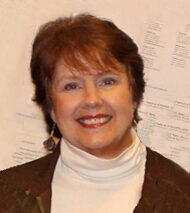
Nancy Huntting , Aesthetic Realism consultant, writes:
What do the French Revolution, a young girl, and America right now have in common? As you’ll see, all three comment on this urgent subject: “Other People—How Should We Think about Them?,” explained deeply and beautifully in the new issue of The Right of Aesthetic Realism to Be Known!
The commentary by Ellen Reiss begins:
Dear Unknown Friends:
Here is part 4 of the great 1971 lecture Things Are Likened to Each Other, by Eli Siegel. He is illustrating this principle, the very basis of Aesthetic Realism: “All beauty is a making one of opposites, and the making one of opposites is what we are going after in ourselves.” There are no opposites more central to the world and our lives than sameness and difference, or like and unlike—and through this talk we see how art is a showing that things different from each other are not only different, but also akin, related.
Then, there is our own life, so intimate, distinct, just ours. Aesthetic Realism makes clear that how well we learn, how well we express ourselves, how well we are able to love, how truly kind we are, how much we can honestly respect ourselves, depend on what we do with sameness and difference. All these depend on how much we see things and people different from us as being also of us, like ourselves.
Further, our false use of those opposites is central to the thing in us that weakens us, the thing that makes us cold, unkind, and deeply foolish. That most hurtful thing is contempt, which Mr. Siegel described as the “disposition in every person to think we will be for ourselves by making less of the outside world.” With contempt, we see ourselves as fundamentally not like other people (or akin only to certain select people), and we feel superior in our presumed non-relation.
The Most Everyday Form
The most everyday form of making ourselves falsely different from other people is our not seeing that they have feelings as real, as keen, as deep, as alive as our own. From this not granting to others the kind of feeling we have, has come cruelty of the steepest kind, including racism, bullying, the tormenting of someone. But, as I said, making other people’s feelings nonexistent is also ordinary. As illustration, it moves me very much to quote from notes of an Aesthetic Realism lesson, taught by Mr. Siegel, which I had many decades ago, when I was six years old. The notes were taken by my mother, Irene Reiss. And I see in her handwriting of so long ago, Mr. Siegel asking me about two people I was having trouble with.
First, he asked: “How do you see your grandmother?” I thought my grandmother was mean. But Mr. Siegel said I needed to ask myself “how a person feels.” He wanted this little girl, so representative of humanity, to see that a person whom I didn’t necessarily have to praise had feelings as real as my own. He asked:
Do you think your grandmother feels lonely? Maybe when she is not nice to you she doesn’t feel so good herself. If she sometimes does the wrong thing, ask if she feels good.
The other person we spoke about was my teacher, whom I disliked. I said, “I don’t like it when the teacher yells.” And my mother’s notes record Mr. Siegel saying this:
Why does the teacher yell? Life can mix anybody up, including teachers. Do you think sometimes your teacher thinks she can’t manage the children?…Do you think she ever cried in her life? Could she even think she made a mistake? Do you want her to be happy? She yells because she is unhappy.
And he said: “The first thing that is necessary to get along with people is to ask what they feel. You are here to learn how you want to feel about the people you know and the people you might know.” Read more